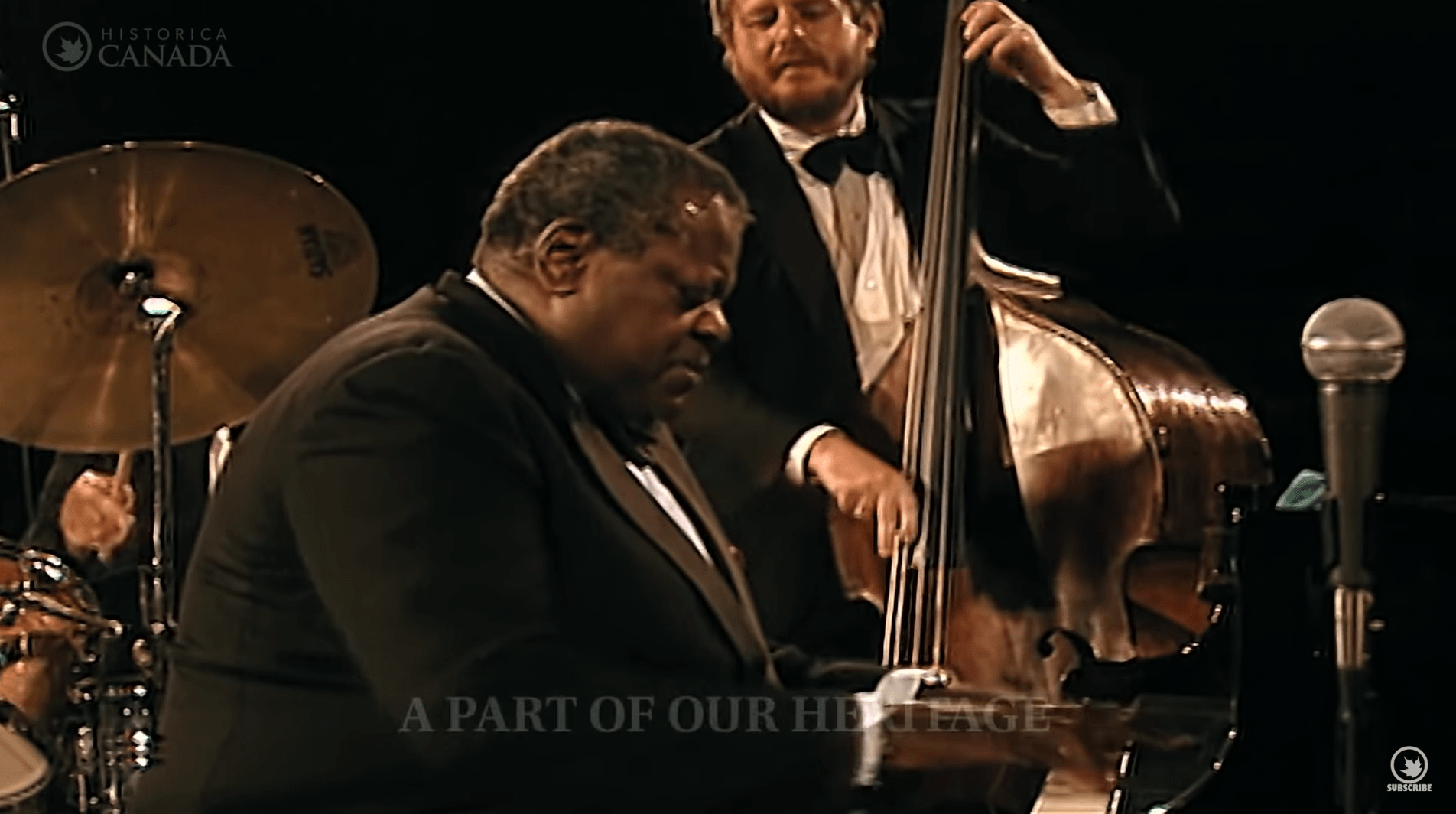The late member of York’s faculty Oscar Peterson’s road to jazz stardom is being highlighted in the new Heritage Minute video.
Peterson, born in 1925, was a Canadian jazz artist who had been awarded seven Grammys and nominated for 12 over the span of his legendary career. His Heritage Minute, which highlights the events of his life starting out as an artist, allows for his story to live on long after his death in 2007.
Growing up in the working-class community of St. Henri, also known as Little Burgundy, Peterson’s father worked as a railway porter and saw music as their ticket out of poverty. He bought a piano and insisted that all of his children learn to play.
The video highlights Peterson’s piano talents and his quick rise to fame as a jazz pianist in the early 1940’s. It showcases the speed in which he became a piano prodigy, his success in leading Montreal’s Alberta Lounge with his own trio, while acknowledging the racism he faced as a Black artist.
Ron Westray, York’s AMPD Oscar Peterson Chair in Jazz Performance — which is a position provided by the Ontario Government to commemorate the late performer — states that Peterson is a “grand symbol of African-Canadian-Heritage” and is a “torch-bearer of American-Canadian jazz tradition.”
“Oscar’s piano style reflects a broad understanding of classical pedagogy, jazz history and vocabulary across styles, and mastery in bebop expression. The importance of discipline, diligence, cogency and clarity are expressed throughout his entire body of work,” continues Westray.
Addressing the racism that Peterson faced in both Canada and the United States is an important part of his Heritage Minute. Céline Peterson, daughter of Oscar Peterson, spoke on the events of discrimation her father faced as a Black musician. In one instance, Oscar faced off with a police officer trying to stop him from getting into a “whites only” taxi cab.
Peterson’s talent on the piano allowed him to pursue music as a career and earned him the nickname of “the man with four hands.”
While the jazz star’s career as a musician is well known, he also earned titles within the York faculty as a music professor and the university’s Chancellor.
York’s President and Vice-Chancellor, Rhonda Lenton, notes that York was exceedingly fortunate to have Peterson as an adjunct professor, stating that, “beyond this Heritage Minute, I encourage everyone at York to learn more about Peterson’s immense contributions to jazz and to music education.”
Lenton continues, explaining that the various student scholarships and the endowed Chair in Jazz Performance established in his honour are reminders of the dedication that Peterson had to extending music education to as many people as possible.
“Rendering him as one of the finest human beings to have graced the planet,” says Westray, “Oscar’s supportive attitude with students and colleagues, his zeal and his palpable enthusiasm for life (and music) perfectly complemented all of his other virtues.”
In support of the Oscar Peterson Heritage Minute, a companion video was also released titled “Oscar Peterson and Montreal’s Little Burgundy”. This video goes into further depth on Peterson’s experiences starting out as a jazz artist in the 1940’s and it is narrated by Céline Peterson herself.
The cinematic style of this Heritage Minute and the companion video raised the question of whether Peterson’s story should be made into a movie to better showcase his career.
Céline admitted that the conversation of a potential movie was not new to her. “Having his story told in that capacity would be natural, to a certain extent,” she explained. “It needs to happen, it’s just a matter of when and by whom.”




